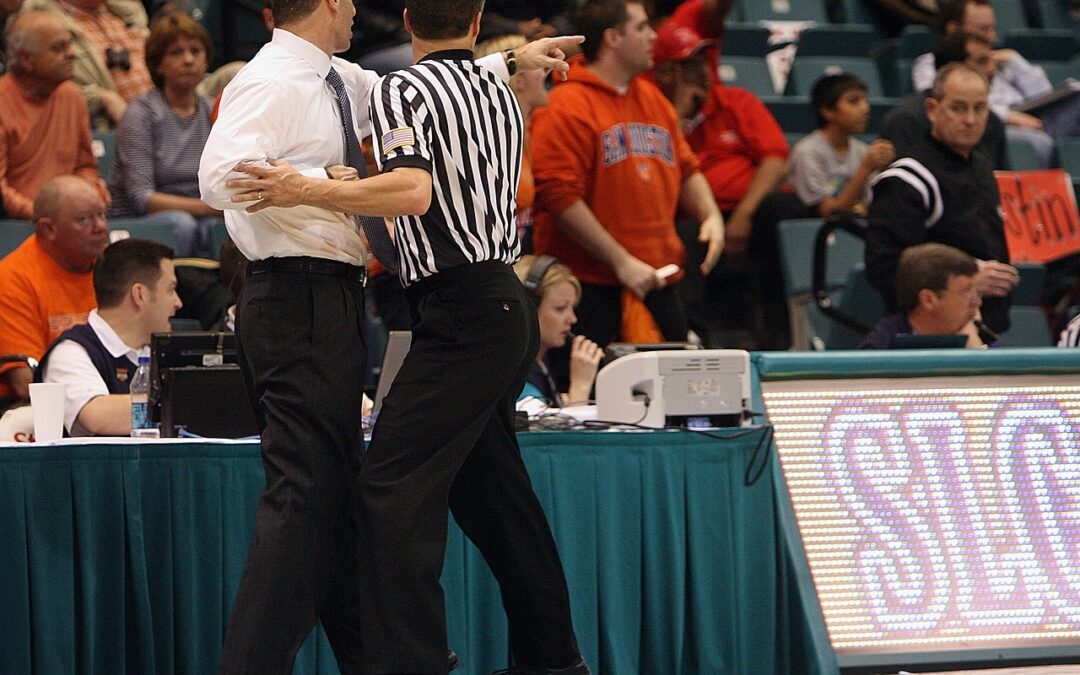When most of us think of coaching basketball and other types of coaches, we tend to look at the entire scope of the profession. However, in reality there are actually five distinct phases. There are no definite timelines for each of these phases and their natural progression depends on each individual coach.
Beginning Phase of Coaching Basketball
As with most professions, people get into coaching for several different reasons. Some are ultra competitive and want the adrenaline rush that comes with being in the arena. Some are attempting to relive or regain their youth. A few “stumble” into a coaching position when they are approached and offered a job based solely on their previous playing experience. Many are former players who may have dome much more analyzing on the bench than actual playing on the floor. This means they are convinced they can do the job. Others saw one of their own coaches having so much fun that it looked like the perfect way to spend their time.
Of course, there are those who watch famous coaches on TV and want the same notoriety, money, and lifestyle. (I almost hate to admit it but I was looking for a job where I could wear shorts and t-shirts to work every day!) This phase is fun and exciting and challenging all wrapped together!
Meaning Phase
It usually doesn’t take long for people to realize that coaching is the greatest job in the world! They can be around the game they love, compete, and most importantly, can have a positive, long lasting impact on the lives of young athletes. These new coaches come to understand just how many life lessons can be taught and learned through the medium of basketball. The original reasons for getting into coaching is still in the back of their minds but now these rookie coaches attach a much greater significance to the work they are doing. In fact, those initial reasons, whatever they may have been, now just became extra perks as they take a back seat to influencing others.
Extreme Competition Phase
The third phase of coaching is one of extreme competition. In this phase coaches want to prove to themselves and to others that they can actually coach successfully and win some games. Coaches in this phase of their career are unusually motivated, dedicated, and focused, and are often perceived as being workaholics. Their win-loss record means everything to them as it becomes a visible reminder of the success and/or failure that has taken place.
There is often a great deal of stress in this phase! At the highest levels of competition much of the stress comes from the “win or else” stipulation that seems to accompany most high end coaching contracts. However, even at lower levels the natural competitive nature of most coaches is going to produce some stress, even if most of it is self imposed.
Coasting Phase
During the next phase of a coaching career, coaches find themselves content with “coasting.” By this time they’ve either proved to themselves that they can coach successfully or they’ve come to grips with the fact that they can’t. Either way they are content with their career and are now just happy with maintaining the status quo. They may not really want to quit coaching but yet they may not know what else to do with their time and energy. Depending on their individual situation there may be some financial ramifications if they no longer coach, so many coaches in this phase just hang on season after season.
Burn Out Phase of Coaching Basketball
The fifth and final phase of coaching basketball, and really any sport, is burn out. Sometimes coaches “retire” temporarily until they get the competitive spark back. Others can postpone this phase by making conscious decisions near the ‘end” of the extreme competition phase. Instead of settling in to a coasting frame of mind it’s possible to take on (or even invent) new challenges to keep the job fresh and exciting. This often involves taking over struggling programs where the challenges are high but the external expectations are fairly low. Many times a coach will come in, take the program from awful to respectable and then move on to the next awful program.
Of course there are some causes of burn out that can’t always be avoided or ignored. Recruiting, travel, parents, fund raising, generation gap, etc. are all aspects of the job that are nearly impossible to ignore depending on which level you are coaching.
So there are the five levels of coaching. Hopefully knowing and understanding them will help you prepare for and manage the rest of your coaching career.
Related: Attitude – Key to Basketball Success
Resources:
Coach Unplugged Podcast:

Ep 1693 Avoiding Basketball Coaching Burnout
If you found this useful, don’t forget to check out additional blog posts at TeachHoops.com. Also, check out TeachHoops on Facebook, Twitter, Instagram and YouTube.
 Practice Planner Live
Practice Planner Live
Failing to prepare is preparing to fail!
Quickly create, organize, & manage your practice plans all in one place to help win games.
Create detailed practice plans
Take a risk free14-day trial at PracticePlannerLive.com today! No credit card required!


